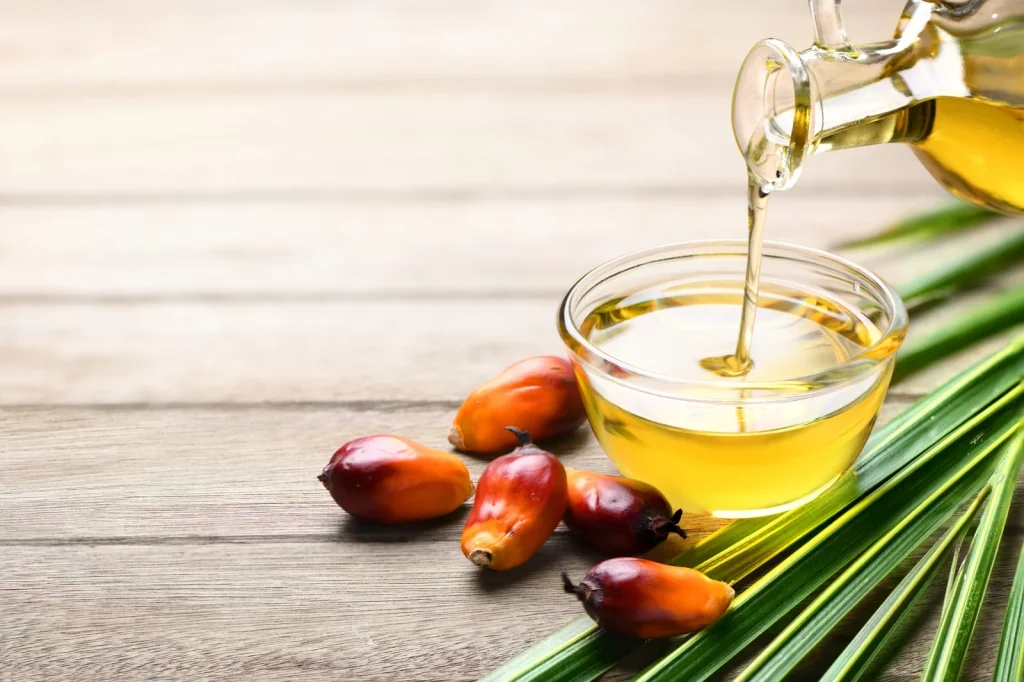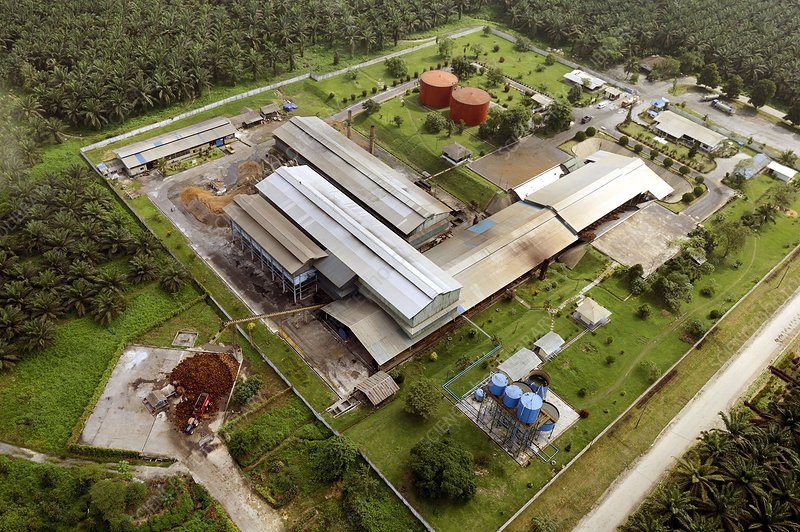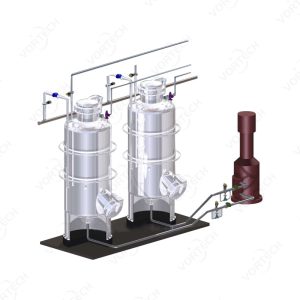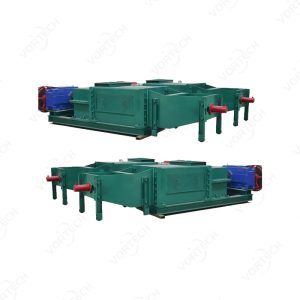Palm oil production is vital to Nigeria’s agriculture, providing food and raw materials. As one of the largest global producers, Nigeria offers significant growth potential in domestic consumption and exports, making its palm oil mill industry a promising opportunity for entrepreneurs, especially in small-scale operations.
Setting up a small-scale palm oil mill in Nigeria can be profitable due to its large plantations, favorable climate, and growing demand. This article explores the costs, required equipment, land considerations, and financial factors for entrepreneurs.
Overview of the Palm Oil Industry in Nigeria
The palm oil industry in Nigeria is vital to the country’s economy, as it contributes to the livelihoods of millions of people, especially smallholder farmers. Nigeria is the fourth-largest producer of palm oil, but it has the potential to be a global leader in this sector. The oil palm tree is grown predominantly in the Niger Delta region, though it is also cultivated in other parts of the country.
Palm oil production involves a series of stages, from harvesting the fruit to processing and extracting the oil. The oil extraction is usually carried out in mills, which can vary in scale and capacity. Small-scale mills process smaller quantities of fruit, typically for local consumption, while larger mills are designed for commercial operations targeting national and international markets.

Understanding Small-Scale Palm Oil Mill Operations
A small-scale palm oil mill is typically designed to process a modest amount of fresh fruit bunches (FFB) daily. These mills serve local markets and are ideal for entrepreneurs who want to start a business with manageable overhead costs. The capacity of a small-scale mill can vary, but most small-scale mills process between 1 to 5 tons of FFB per day.
The following steps are commonly involved in the extraction of palm oil:
- Fruit Harvesting: Oil palm plants are used to gather bunches of palm fruit.
- Sterilization: The fruit bunches are steamed to soften them and facilitate oil extraction.
- Threshing: The fruit is separated from the bunches using a threshing machine.
- Pressing: The oil is extracted by mechanical or hydraulic pressing methods.
- Clarification and Filtration: To get rid of contaminants, the crude oil is clarified and filtered.
- Storage: The final product is stored in tanks until it is packaged and sold.
Crucial Factors Affecting the Cost of Starting a Palm Oil Mill
Several factors influence the cost of establishing a small-scale palm oil mill. These variables include labor costs, the location of the mill, the kind of equipment utilized, the degree of automation, and the scale of output.
The mill’s size and scope
The size and scale of the palm oil mill will have a considerable impact on the entire cost. Small-scale mills typically process between 2 and 10 tons of fresh fruit bunches per day. The larger the mill, the more equipment, labor, and infrastructure are required. Smaller mills will have lower initial setup costs, but they may not be as efficient or profitable as larger mills that process higher quantities of palm fruit.
Cost of Small-Scale Mills
For a small-scale mill processing around 5 tons of FFB per day, the cost of the entire setup, including equipment, land, and infrastructure, can range from ₦3 million to ₦7 million (approximately $6,000 to $14,000). The cost can vary based on location, equipment quality, and the need for specialized machinery.
Cost of Equipment
The equipment needed for a small-scale palm oil mill can be broken down into several key categories: fruit processing machinery, oil extraction equipment, and other ancillary tools. The most essential equipment includes:
Fruit Sterilizer: The sterilization unit is used to steam the palm fruit bunches to soften them and prepare them for threshing and pressing. The cost for a small-scale sterilizer can range from ₦1,000,000 to ₦3,000,000, depending on its capacity and technology.
Threshing Machine: The palm fruits are separated from the bunches using a threshing machine. A small-scale threshing machine can cost between ₦500,000 and ₦1,500,000.
Palm Oil Press: The oil press is the most important piece of equipment for extracting oil from the palm fruit. The cost of a small-scale palm oil press ranges from ₦1,000,000 to ₦5,000,000, depending on the capacity and features.
Clarification and Filtration System: The oil is filtered and clarified to eliminate contaminants following pressing. This system can cost anywhere between ₦300,000 and ₦1,500,000.
Storage Tanks: Prior to packaging, the processed oil must be stored. Storage tanks typically cost between ₦300,000 and ₦500,000, depending on the size and material.
Additional Equipment: Other equipment includes loading and unloading systems, packaging machines, generators, and water treatment systems. These additional systems may cost between ₦500,000 and ₦1,500,000.
Land and Infrastructure
Setting up a palm oil mill requires land for the mill itself and possibly a place to store raw materials and finished products. The location of the mill is crucial because it affects transportation costs, access to raw materials, and proximity to markets. Generally speaking, rural locations have cheaper land prices than metropolitan ones.
Cost of Land
Land prices vary across different regions in Nigeria. In rural areas where oil palm is grown, land prices can range from ₦500,000 to ₦2 million ($1,000 to $4,000) for a small plot of land. Prices may be substantially higher in cities. You will also need to invest in infrastructure, such as roads, buildings, storage facilities, and electricity connections.
For a small-scale mill, the total cost for land and basic infrastructure can range from ₦1.5 million to ₦3 million ($3,000 to $6,000).
Installation and Setup Costs
Installation is the next step after purchasing the equipment. The location of the mill and the complexity of the machinery will affect the installation expenses. For small-scale mills, installation and setup costs can range from ₦500,000 to ₦1,000,000, which covers transportation, labor, and setup fees.
Labor Costs
Labor is an essential part of running a palm oil mill. Small-scale mills typically require a team of workers to handle the various stages of production, including harvesting, processing, and packaging. The number of employees and the going rates for wages in the area will determine labor costs.
Breakdown of Labor Costs
A small-scale mill may need workers for the following roles:
- Mill Operator: ₦30,000 – ₦50,000 per month ($60 – $100)
- Harvesting Workers: ₦20,000 – ₦40,000 per month ($40 – $80)
- Packaging Workers: ₦20,000 – ₦30,000 per month ($40 – $60)
- Cleaner/Assistant: ₦15,000 – ₦25,000 per month ($30 – $50)
If you hire a team of 5 to 10 workers, monthly labor costs will range from ₦150,000 to ₦300,000 ($300 to $600).
Utilities and Ongoing Operating Costs
Once the mill is set up, there are recurring costs for utilities such as water, electricity, fuel, and maintenance. Electricity is an essential utility for powering the mill’s equipment, while fuel will be required for the boiler and other machinery. The mill’s location and degree of automation will affect these expenses.
Breakdown of Operating Costs
- Electricity: ₦30,000 – ₦100,000 per month ($60 – $200)
- Water Supply: ₦10,000 – ₦30,000 per month ($20 – $60)
- Fuel for Boiler: ₦40,000 – ₦80,000 per month ($80 – $160)
- Maintenance and Repairs: ₦50,000 – ₦100,000 per month ($100 – $200)
Raw Material Costs (Fresh Fruit Bunches)
The primary raw material for the palm oil mill is fresh fruit bunches (FFB), which are typically sourced from nearby palm oil plantations or local farmers. The availability, quality, and season can all affect the cost of FFB. On average, the cost of FFB in Nigeria ranges from ₦10,000 to ₦20,000 per ton ($20 to $40).
A small-scale mill processing 5 tons of FFB per day will require an average monthly cost of around ₦1.5 million to ₦3 million ($3,000 to $6,000) for raw materials.
Total Estimated Cost Breakdown
Based on the factors outlined above, here is a total estimated cost breakdown for setting up a small-scale palm oil mill in Nigeria:
| Item | Cost Range (₦) | Cost Range (USD) |
| Machinery and Equipment | ₦1,000,000 – ₦4,000,000 | $2,000 – $8,000 |
| Land and Infrastructure | ₦1,500,000 – ₦3,000,000 | $3,000 – $6,000 |
| Labor Costs (monthly) | ₦150,000 – ₦300,000 | $300 – $600 |
| Utilities and Operating Costs | ₦100,000 – ₦200,000 | $200 – $400 |
| Raw Material Costs (monthly) | ₦1,500,000 – ₦3,000,000 | $3,000 – $6,000 |
| Total (Initial Setup + First 6 Months) | ₦3,000,000 – ₦7,500,000 | $6,000 – $14,000 |
Conclusion
Setting up a small-scale palm oil mill in Nigeria can cost between ₦3 million and ₦7.5 million ($6,000 to $14,000), depending on production scale and equipment. Despite the high initial investment, the growing demand for palm oil offers significant profit potential, making it a viable business with proper planning and efficient management.






